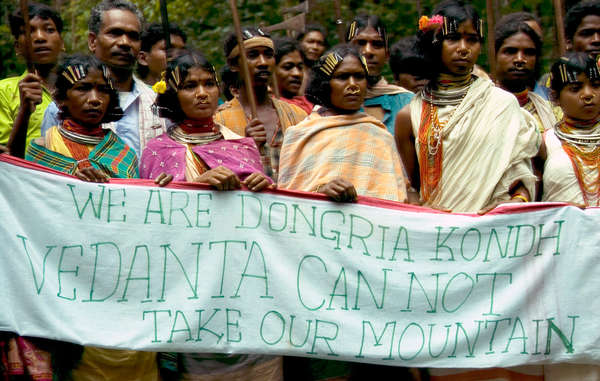Chefs take classes in making healthier curries
Curry chefs are being sent back to school to learn to cook healthily.
 Chef Cyrus Todiwala shows how to cook a health curryOne local authority is running special classes for them because they are worried that a lot of restaurants are serving dishes which are too high in salt, fats and calories.London's Tower Hamlets Council and NHS Tower Hamlets are concerned about the effect this is having on the health of local residents.
Chef Cyrus Todiwala shows how to cook a health curryOne local authority is running special classes for them because they are worried that a lot of restaurants are serving dishes which are too high in salt, fats and calories.London's Tower Hamlets Council and NHS Tower Hamlets are concerned about the effect this is having on the health of local residents.
The results so far have surprised even hardened curry lovers.
'It still tastes the same'
The Tale of India restaurant, in the Docklands, is similar to thousands of curry houses up and down the country.
For years customers like newsagent Kirit Patel have enjoyed its dishes which in the past were prepared in unhealthy oils, laced with lots of salt and high in calories.
"I have been coming here for about 10 years and I love it," he says.
But what he and other customers are unaware of is that what is now being served is not quite what they think it is.
That is because for the last few months the kitchen of The Tale of India and some other local restaurants have been preparing their dishes in a different way.
They no longer fry onions, garlic, chillies and ginger for the curry base in ghee (clarified butter). They now use rapeseed or other oils which are much lower in saturated fat.
They are also using less spice and ensuring they do not overcook their vegetables.
But it has all been done in such a way that the customers have not noticed.
"It still tastes the same as it was. Delicious," says Kirit Patel.
Zubeer Ahmed Laskar, head chef and owner of the Tale of India, is delighted with the results.
"The customers still love the food and I realised it hasn't effected my business because it is not more expensive.
"In fact it's very good for business because we are a healthy restaurant," he says.
Less damage
The man whose recipes are behind this health revolution is TV chef Cyrus Todiwala who runs the Café Spice Namaste restaurant in the City of London.
Tower Hamlets council and the NHS recruited him to teach other chefs the secrets of his healthy curries.
"Indian food across the UK is perceived to be unhealthy, greasy, oily and not nutritious, whereas the contrary applies. Because Indian food revolves around medicine.
"The old Indian saying 'let food be the high medicine' is very much a part and parcel of Indian cooking.
"But some of us have lost our way," he says.
Tests carried out by Tower Hamlets council back up his claims.
They show an average 336g portion of lamb curry contains 561 calories. If it is served with a portion of boiled rice, at 359 calories, the two would almost equal to half the daily recommended calorie count for a woman.
It is also very high in saturated fat at 10.15g. On top of that it has 3.2g of salt - over half the upper limit for an adult for a day.
The new curries contain far less salt, fat and calories.
Mr Todiwala says this actually improves the taste because they allow the spices and the ingredients to cut through. He said they have all the flavours but do far less damage to our health.
"It is perhaps a slight lack of knowledge, understanding of nutrition and cooking," he says.
"The idea is to make people more aware of the mistakes they are making, change their techniques a little bit.
"It saves them money as well, because if they use less fatty produce and less harmful substances, they actually end up saving money for themselves."
People 'have the choice'
The workshops, organised by the council and NHS Tower Hamlets Healthy Borough Programme, are aimed at tackling obesity and improving health in the borough.
Tower Hamlets is home to one of the largest Bangladeshi populations in the country.
Research has found that Bangladeshis have the highest mortality rate from coronary heart disease of any ethnic minority group in the UK.
They are also three to five times more likely to suffer kidney disease than others. Experts think that excess salt, fatty and oily foods are possible factors.
Michele Sandelson, a public health dietician from NHS Tower Hamlets, says: "By offering the free healthier cooking workshops to local food businesses we want to ensure people can have the choice of enjoying healthier food when eating out."
The fact that an estimated 80% of "curry houses" in the UK are Bangladeshi-owned and run adds weight to the argument to extend the idea.
Cyrus Todiwala says: "I think the rest of the country can definitely benefit."


